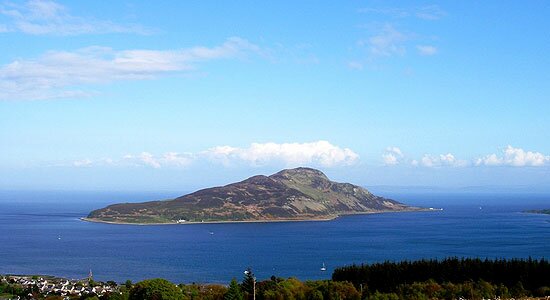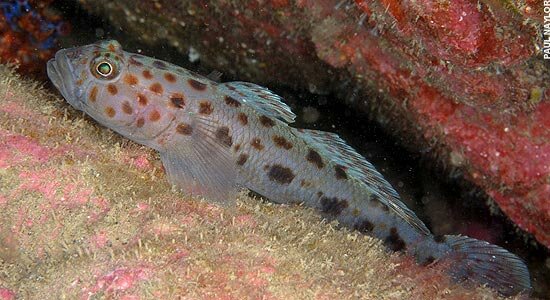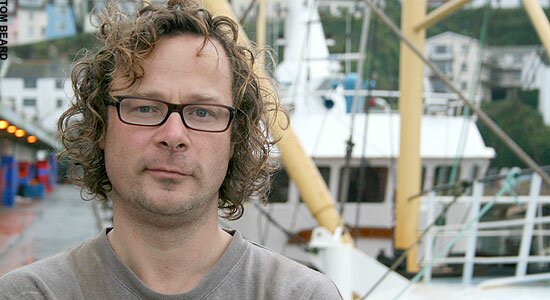Monthly Archive for May, 2009
This week saw lots of coverage of Nobu’s decision to leave bluefin tuna on their menus, but to include a suggestion that diners choose a sustainable alternative.
The story featured on The Guardian’s Word of Mouth blog, where Jay Rainer labelled it “indefensible idiocy”.
The Telegraph, The Independent, The Daily Mail and This is London carried the story with all mentioning Charles Clover’s book and the film.
This is London followed up their coverage with an opinion piece by Charles Clover, where he said: “[Nobu] is participating in the extermination of a species.
“And when his celeb clientele finally understand that this is wrong, they will turn their backs on his restaurants, never to return.”
Coverage of The End of the Line increased with two articles appearing on The Telegraph. It ran a story on Ted Danson’s endorsement of the film and a review, with both including video clips.
Continue reading ‘Nobu leave bluefin tuna on menu, but add warning’

The celeb-favourite sushi restaurant Nobu is back in the media spotlight this week, but with column inches devoted to bluefin tuna rather than A-list diners.

Greenpeace activists give out leaflets outside Nobu protesting against the restaurant selling bluefin tuna
As Greenpeace revealed last year, Nobu, who pride themselves as market leaders and an exclusive venue, were serving up bluefin tuna as sushi.
Bluefin is an endangered species, like rhinos, tigers, or gorillas, and after it was pointed out to them last September (although the species had been on the IUCN red list of endangered species for 12 years, had they bothered to check), they gave assurances that they would do something about it.
But sadly it seems Nobu can’t be bothered. They know they are serving up endangered species, and helping to push them towards extinction, but profit comes first, right? Continue reading ‘Robert De Niro, what are you waiting for?’

The End of the Line has been cropping up on blogs and news sites, and is receiving some very positive feedback.
Recent comments on the film and the campaign have appeared on the Washington Post, California Chronicle, Spear’s WMS (Wealth Management Survey) and Whole Food Market’s blog. Here is a round-up of the coverage the film is receiving.
Charles Clover answers questions about the film and it’s message for the Washington Post’s All We Can Eat food blog.
Asked whether it is too late to save the oceans, he replies: “No. But part of the problem is that people still believe we live in a world of plenty. The world of plenty in terms of fish disappeared in 1988, and we haven’t caught up with that fact yet.”
He goes on to deal with the issue of farming carniverous fish: “It takes five pounds of little fish to grow one pound of salmon. And actually those fish, like Peruvian anchoveta and blue whiting, eat very nicely. So why don’t we eat the little fish?”
In an opinion piece for Spear’s WMS, William Sitwell, Editor of Waitrose Food Illustrated, writes: “While those in the food world and others who know and care about the plight of depleting fish stocks have been talking about this for ages, sometimes you need to get something onto the telly to get people to pay attention.”
Whole Story, the Whole Foods Market blog, has a review by Carrie Brownstein, which has generated some debate amongst readers. She says: The film begins with beautiful footage of marine life and quickly (and graphically) moves toward its key message: The oceans are overfished and fish populations are in trouble.”
John Mitchell, writing in the California Chronicle, considers the the social implications of the need to curb overfishing:
“One of the most fascinating passages of the film . . . takes a look at the coast of Africa, which is being overfished by foreign - specifically European - boats. This has decimated not only the sea but also the livelihood of local fishermen, who now have nothing to catch.
“Colonialism is dead officially, but its ghost continues forward in the form of sucking up resources - the fish depletion is a direct contributor to the current pirate problem that’s making the headlines, pushing once-working fishermen into a life of crime in retaliation.”
What saddened Amanda Rappak the most, in the Green Living blog, was the inability of governments to “penetrate the complex fish market system with effective enough controls that would actually limit how much fish is caught”.
She also highlighted the film’s positive message: “The film offers avenues for taking action with its campaign, and so does Greenpeace. But it seems the first step to change would begin with a personal pledge to always knowing exactly where your food comes from and how it reached your plate.”
The Enviro blog at Huck Magazine cites the support the film is getting: “The film which was selected for the Sundance Film Festival this year has gathered international support from organisations such as WWF, and well known faces such as broadcaster Hugh Fearnley-Whittingstall, also offers simple solutions we can all adapt to help prevent such a tragic future.”
Writing in the 1Click2Fame blog, Annabel Harrison says: “After watching the film, I realised that we should be doing so much more to protect what is one of the biggest natural sources of food for humans. The positive aspect of this global issue is that it’s not too late – there is plenty we can do to make sure that species don’t become extinct.”
On her blog, Regency Life in the 21st Century, Kimba writes : “We forget that these waters are also our to maintain, protect, and sustain. How? By eating only sustainable seafood. By helping politicians understand there needs to be protected areas where fishing is illegal. By getting the word out! There is a great new book and film “The End of the Line” that will tell you more.”

- Howard Wood is the chairman of COAST - Community of Arran Seabed Trust
I have battled and campaigned against the short sightedness of Government fishing policy for 15 years. In September 2008 Scotland got its first, small no take zone in a part of Lamlash Bay off the Isle of Arran. The rest of the Bay was to be designated a Marine Conservation Area but it has not happened yet.

Lamlash Bay, Isle of Arran, where a no take zone has been established
This despite the entire project, Lamlash Bay Community Marine Conservation Area, being trumpeted through the press in January 2008 by Richard Lochhead, SNP Minister, as an excellent joint Community, Government & Fishermen project.
The inertia appears to be due to Mr Lochhead and civil servants worrying about upsetting the trawling & dredging fishing industry.
The Clyde Fishermen’s Association walked away from talks to implement the scheme in January 2009 and thereafter Marine Scotland, the department that overseas the marine environment, has refused to allow the Marine Conservation Area to even appear on the agenda of meetings.
Subsequent meetings have been cancelled or postponed. Procrastination is the name of the game. Continue reading ‘Change of government fishing policy is possible, but very difficult’

Environmental protection groups have launched an 11th hour bid to get better legal protection for marine life around Britain’s shores.
They will be protesting in Westminster today as the new Marine and Coastal Access Bill completes its passage through Parliament.

Leopard spot goby in waters off the British coast
The groups say it will be the last chance to insert tougher measures into the Bill which will guarantee protection for the most important areas in the marine environment.
The RSPB, The Wildlife Trusts, the Marine Conservation Society and WWF have been campaigning for comprehensive legislation for almost a decade.
They claim the current proposals are too weak and won’t prevent the steady decline of many marine species and habitats in UK waters due to over fishing and industrialisation. Continue reading ‘Marine Bill: Environment groups launch 11th hour bid for better protection’

Hugh Fearnley-Whittingstall, writer, broadcaster, campaigner and advocate of seasonal and ethically-produced food has offered his support for The End of the Line.

Hugh Fearnley Whittingstall has offered his support for The End of the Line film and campaign
With co-author Nick Fisher, he wrote The River Cottage Fish Book. Hugh says the aim of the book was “to empower you, the consumer, to make choices which will genuinely help to reverse the decline in our native fish stocks.”
He is currently filming for the new series of River Cottage which begins on Wednesday 3rd June on Channel 4.
In the next edition of the River Cottage newsletter, Hugh writes:
“You may well have heard of Charles Clover’s excellent and eye-opening book, The End of The Line, which deals with the far-reaching effects of over-fishing in our seas. Continue reading ‘Hugh Fearnley-Whittingstall supporting The End of the Line’

No, this is not another story about the crazy things we feed to our farm animals, but rather yet another sad tale of failure in fisheries management … and yet another nail in the coffin for bluefin tuna in the Mediterranean.
Quite apart from the fact that ICCAT (the body responsible for managing fish like bluefin tuna) has been repeatedly denounced as not fit for the job (specifically it was called an ‘international disgrace’ last year); and aside from the politicians having yet again set quotas for bluefin tuna in excess of the scientists recommendations; skipping over the issue of rampant illegal fishing for this species; and parking the small issue of this being an endangered species… Turkey has just unilaterally set itself a quota for bluefin, breaking international commitments and sticking two fingers up at any coordinated attempt to manage the species across national boundaries.
This is on top of a Greenpeace investigation revealing that between 5 and 10 tonnes of juvenile bluefin tuna had been landed in a Turkish port.
Now, as we know, fish (and other animals) don’t respect national boundaries, so in theory some international cooperation is a good idea when it comes to looking after these animals. Right? You’d think. But in true tragedy-of-the-commons style, that is often scant comfort for things that live in the ocean. Fish are horse-traded against other political issues, and compliance and enforcement is, well, variable to say the least.
But think for a moment, to what might happen if bluefin tuna were not a fish, but a land animal, like the similarly endangered rhino, tiger, or gorilla … would this be allowed to happen?
Maybe bluefin are just not cuddly enough, and a little too tasty – but they are amazing animals. This is one of the reasons why bluefin are the tragic stars of the new movie, The End Of The Line. If they were mammals they might be admired for their size (like elephants), speed (like cheetahs) or their place as a top predator (like tigers).
Sadly – they are more likely to be appraised only for the amount of dollars or yen they fetch at market. Of course this is scandalously short-sighted, and our collective greed and disregard is pushing the species towards extinction.
The people in charge of ‘managing’ bluefin tuna have failed – it’s time for a new approach, and for the species to be treated as it would be if it were an endangered animal on land. And with politicians and fishermen unwilling to do the right thing, it’s time for consumers and suppliers to take a stance.
So it’s up to the big players like Nobu, who serve up bluefin as sushi to celebrity diners, and Mitsubishi, who are the biggest traders in bluefin in the Mediterranean.
Not only should we all be avoiding bluefin on our menus, but also demanding our politicians take action to turn things around, and hopefully rescue the species from the abyss. The first step in the Mediterranean would be a ban on fishing all bluefin until such time as the management and enforcement was sorted out, and in setting aside areas where we know bluefin breed as protected Marine Reserves.
Otherwise, it might well be the end of the line for an iconic ocean species.

A row over scallop-dredging in Cardigan Bay has escalated after fisheries regulators ignored a demand by the Welsh Assembly’s wildlife advisers for an immediate and total ban in areas protected by European conservation legislation.
The call by the Countryside Council for Wales (CCW) for all scallop-dredging authorisations to be suspended pending completion of investigations into threats to wildlife followed a formal complaint to Brussels by four conservation groups, who accused the UK and Welsh governments and fisheries regulators of defying EU law by failing to stop scalloping-boats disturbing dolphins and seals and damaging or destroying their habitats and breeding sites.
The CCW is now effectively backing that line, saying that current dredging is breaking European wildlife-protection legislation.
CCW regional manager Tim Jones told the Lancaster-based North Western and North Wales Sea Fisheries Committee, which has responsibility for policing sea areas up to six miles from land, that the risk of damage to dolphins’ and seals’ habitats “may be imminent”, and that there was an “urgent” need for the committee to act.
The warning came just a month before the current scallop-dredging season in Cardigan Bay, which began in October, ends on 31 May.
But, in a response which is likely to exasperate the CCW, Stephen Atkins, the committee’s chief executive, made clear this week he was not prepared to intervene immediately to stop the dredging, which churns up the seabed and is widely recognised to be a very destructive method of gathering a highly valuable catch now classed as a luxury food.
He said: “Dredges do damage lots of types of seabed, but I am not prepared to pre-empt any decision by the committee, which does not meet next until 12 June.
“Officers do have delegated powers to take emergency action, but they are not terrifically explicit, and I would rather have committee support.”
Under a legally-backed precautionary regime within the EU Habitats Directive supposed to safeguard Cardigan Bay’s two special areas of conservation (SACs), authorities are obliged to act if there is even a well-founded suspicion that activities such as scallop-dredging could damage SACs.
But Dr Atkins said: “The trouble is the precautionary principle is a vague term, and we don’t really know how we define it.”
Some parts of the Bay’s northern and southern SACs have been closed to scalloping. But the concerns of CCW and conservation organisations including Friends of Cardigan Bay and the Whale and Dolphin Conservation Society
centre on about 45 square miles of theoretically protected waters off an area stretching from New Quay to Cemmaes Head known to be heavily used by bottlenose dolphins.
The tone of the letter from the CCW, which in the past has been criticised for being weak on marine protection, is uncharacteristically hard-hitting, accusing the fisheries committee of “deficiencies” in its approach “to the assessment of the potential impacts on the fishery.”
It says an assessment of environmental impacts underpinning current scallop-dredging authorisations contains weaknesses and is four years out of date, and that it is concerned that dredging currently allowed in Cardigan Bay and Pen Llyn a’r Sarnau SACs is illegal under the terms of the Habitats Directive.
The CCW has sent a similar letter to the Assembly government, which is responsible for sea areas beyond six miles from shore.
Rural affairs minister Elin Jones repeatedly refused to comment directly on the call for an immediate halt to dredging, although the bulk of scalloping tends to take place in offshore areas the government – not the fisheries
committee - is supposed to regulate.
A spokeswoman said: “The minister called in February for a review of the current restrictions for scallop-dredging in response to increasing concerns over the level of fishing in Cardigan Bay.
As part of that process the minister has asked Assembly government officials to work closely with key stakeholders including the CCW and sea fisheries committees to consider the management and sustainability of scallop-fishing in Wales.
“The working group is considering whether the management of this fishing can be further improved and if there is a need to bring forward more effective controls in the future for this fishery.”
The fisheries committee came under further pressure in a letter from Ceredigion Liberal Democrat MP Mark Williams, who asked why it had not followed CCW’s advice and suspended all scalloping.

Charles Clover, author of The End of the Line and one of the stars of the film, has talked to Fork in the Road, the food blog for Village Voice in New York.
He outlines his concerns about overfishing, the solutions that are currently in place and why we shouldn’t assume we live in a world of plenty. He also talks about whether he eats fish, he says:
“Yes, but less than I did. I am mightily confused by whether any farmed fish is sustainable and I would just prefer to eat the little fish that they feed to carnivorous fish . . . . I like mackerel, which is now MSC-certified, and have learned that it makes wonderful sushi straight out of the sea with English mustard, as Hugh Fearnley-Whittingstall serves it.”
To read the full interview see No Fish by 2048? The End of the Line–Interview with Journalist Charles Clover on the Fork in the Road on Village Voice.

![]()






